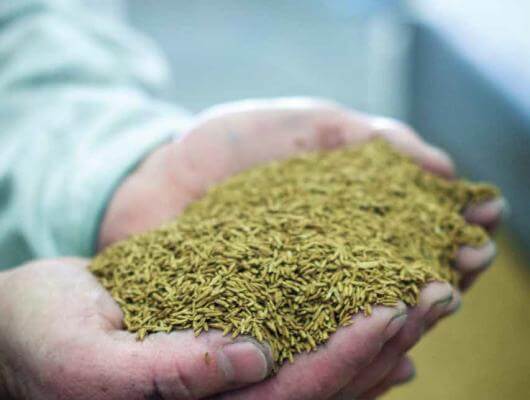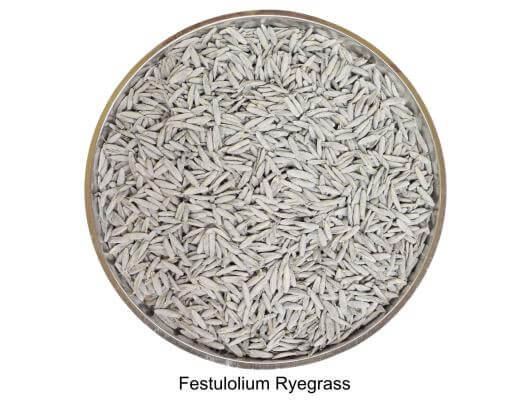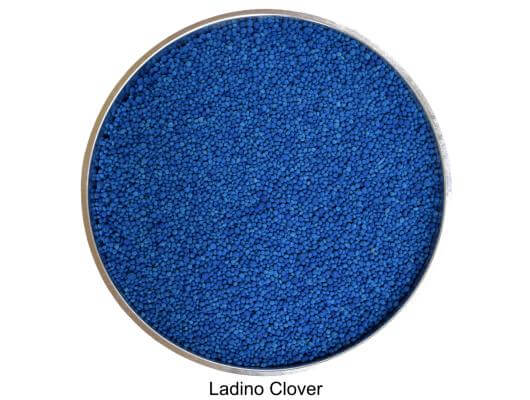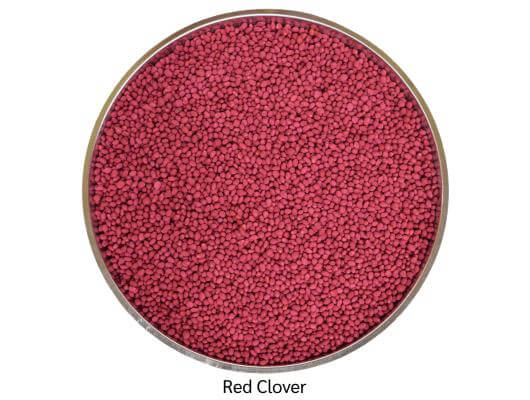Coating Seed Offers Many Options
Many of you are familiar with the value of coating legumes, and the numerous reasons our industry has readily adopted this technology. It is founded on the first premise that optimal legume performance is dependent on a high level of live rhizobium coming in contact with seedling roots. Coating provides the packaging to deliver this in a consistent manor. Additional benefits have been found exists. These include ease of application, reduced cost, better ballistics, and increased moisture retention.
But the benefits of coating aren’t exclusive to just legumes. Nor are the benefits to legumes solely in adding inoculant. We plant seed because we want plants that serve a purpose to the best of their genetic potential.
Over the past few years there has been considerable investment from the row crop industry towards better crop and soil health with seed-applied inputs. More and more we are finding the low hanging fruit in terms crop, forage and turf production is a stronger focus on the first 8 weeks of establishment. Younger plants that are challenged early on by disease pressure, lack of moisture or nutrition will generally fail to mature to its potential. Smith Seed Services will continue to focus on advancements in different areas of seed-applied technologies, especially in the following areas:
Biologics
Nutrients in our soils are widely unavailable to plants for uptake in their given form. Soil bacteria break these nutrients down, making them readily available for plant uptake through their digestive processes. Additionally, some of these bacterium offer the developing plants increased disease resistance. For seedlings and younger plants with under-developed root systems, these bacterial activities are essential, but often under-expressed. Any disturbed soil is likely to be deficient in beneficial soil biology. Tilling, plowing, flooding, compaction, and fumigation are a few of the practices that greatly deplete beneficial soil biology. Additionally, a lack of humus (dead plant stuff) will result in depleted numbers. These depleted numbers mean insufficient plant-available nutrients unless continuously compensated by crop inputs. With healthy populations of beneficial bacteria, however, macro and micro-nutrients are consistently being produced, whereas the benefit of a crop input is short-term.
Macronutrients
Nitrogen, Phosphorus, and Potassium are the primary nutrient components responsible for plant growth. Deficiencies in these nutrients will result in plant development below a plant’s maximum potential. Deficiencies in these primary nutrients are more common than not. Soils without organic matter inputs will typically be quite low in all three components. The addition of macronutrients to our coatings helps ensure each seedling has adequate nutrition during critical stages of growth and development. Smith Seed Services offers nitrogen and phosphorus sources to satisfy both the conventional as well as certified organic markets.
Micronutrients
Commonly overlooked in terms of their level of contribution towards root and plant development, minerals such as zinc, iron, copper, molybdenum are all essential in early plant development, namely root development. Root development is the lifeblood of any plant. Though these minerals can be found in varying concentrations in our soils, their availability for uptake may be limited by a lack of soil biology. Chelation is the process of combining a mineral molecule with a protein molecule. This process makes the mineral available for immediate uptake by the plant. This is a naturally occurring process, but for soils without adequate bacterial populations, seedlings are challenged not only from a nutrition standpoint, but also from a disease resistance standpoint as well. Micronutrients in seed coating makes perfect sense. These are the components most critical to the early stages of seedling development. How rapid a plant is able to develop a healthy root system will be the primary factor in the health of the adult plant. Smith Seed Services’ micronutrient packages are chelated minerals for both conventional and certified organic coatings. These products will leach into the soil immediately surrounding the seed upon germination, right where it is needed most. Learn more about our seed enhancements at www.SmithSeed.com, or by contacting your Smith Seed Services Representative.



